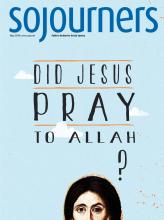I WAS PRESENT when my uncle died. I didn’t plan to be, but once I understood his end was near it felt right. I had been the flower girl at my aunt and uncle’s wedding, the ritualized beginning of their life together, so witnessing this milestone event of my uncle’s death seemed appropriate. And I wanted to support my aunt, I told myself.
My aunt is my father’s youngest sister. They are the last living siblings from nine brothers and sisters; both their parents are also long gone. My aunt wears this fact like a veil. Sometimes it’s barely noticeable; sometimes it’s the only thing she sees. While my parents’ divorce had kept me apart from my aunt for much of my life, it seemed important, the fury of those old family dramas now covered with dust, to offer my aunt support in her husband’s last days, hours, then moments. She was hardly alone. My aunt has three grown daughters, and my uncle comes from a huge family, most of whom were packed into the hospital room where he died at 2:20 p.m. on Sept. 22, 2013.
My aunt told me she was happy to have me, a representative from her side of her family, present. So I was there. For her, I said.
But to tell the truth, I was there to learn. I have plenty of information about the beginning of life. People in my generation received hours of tutoring, lecturing, indoctrinating, and warning about puberty, childbirth, birth control, and “safe sex.” Although we were actually not given much information about sexuality—I had to learn that on my own. But I knew even less about death.
Read the Full Article
